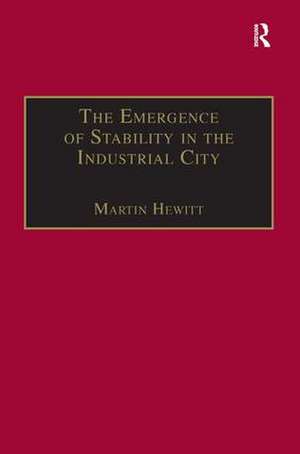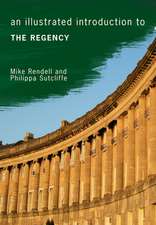The Emergence of Stability in the Industrial City: Manchester, 1832–67
Autor Martin Hewitten Limba Engleză Hardback – 28 mar 1996
Preț: 247.40 lei
Preț vechi: 296.34 lei
-17% Nou
Puncte Express: 371
Preț estimativ în valută:
47.36€ • 48.73$ • 39.92£
47.36€ • 48.73$ • 39.92£
Carte tipărită la comandă
Livrare economică 01-15 martie
Preluare comenzi: 021 569.72.76
Specificații
ISBN-13: 9781859282762
ISBN-10: 1859282768
Pagini: 352
Dimensiuni: 156 x 234 x 31 mm
Greutate: 0.45 kg
Ediția:1
Editura: Taylor & Francis
Colecția Routledge
Locul publicării:Oxford, United Kingdom
ISBN-10: 1859282768
Pagini: 352
Dimensiuni: 156 x 234 x 31 mm
Greutate: 0.45 kg
Ediția:1
Editura: Taylor & Francis
Colecția Routledge
Locul publicării:Oxford, United Kingdom
Cuprins
Introduction; Manchester: economic growth and social structure; The genesis of middle-class moral imperialism; The rejection of religion; The repudiation of useful knowledge; The resilience of unrespectable recreation; The continuities of working-class consciousness; The strategic contradictions of mid-nineteenth-century radicalism; The restraint of working class politics; Conclusion; Bibliography; Index.
Recenzii
'...a model of historical method...he makes use of many hitherto unused or under-used sources...thoroughly readable and accessible....' English Historical Review 'Hewitt’s arguments need careful consideration not just by those interested in nineteenth-century Manchester but by those concerned with current debates about class and class relations and the significance of the ’linguistic turn’ for the practice of history.' Victorian Studies '...this rich, complicated, difficult book hides its simplicities beneath a formidable forensic intelligence. Scolar/Ashgate deserve congratulation for seeing the importance of its contribution as well as Hewitt for having made it.' The Historical Journal, 42.3 '...a well-researched and lucid monograph.' Urban History, Vol. 26, No. 3
Descriere
The rapid eclipse of Chartism, and the relative tranquility of the period 1848-67 has been one of the most enduring puzzles of nineteenth-century British history.




